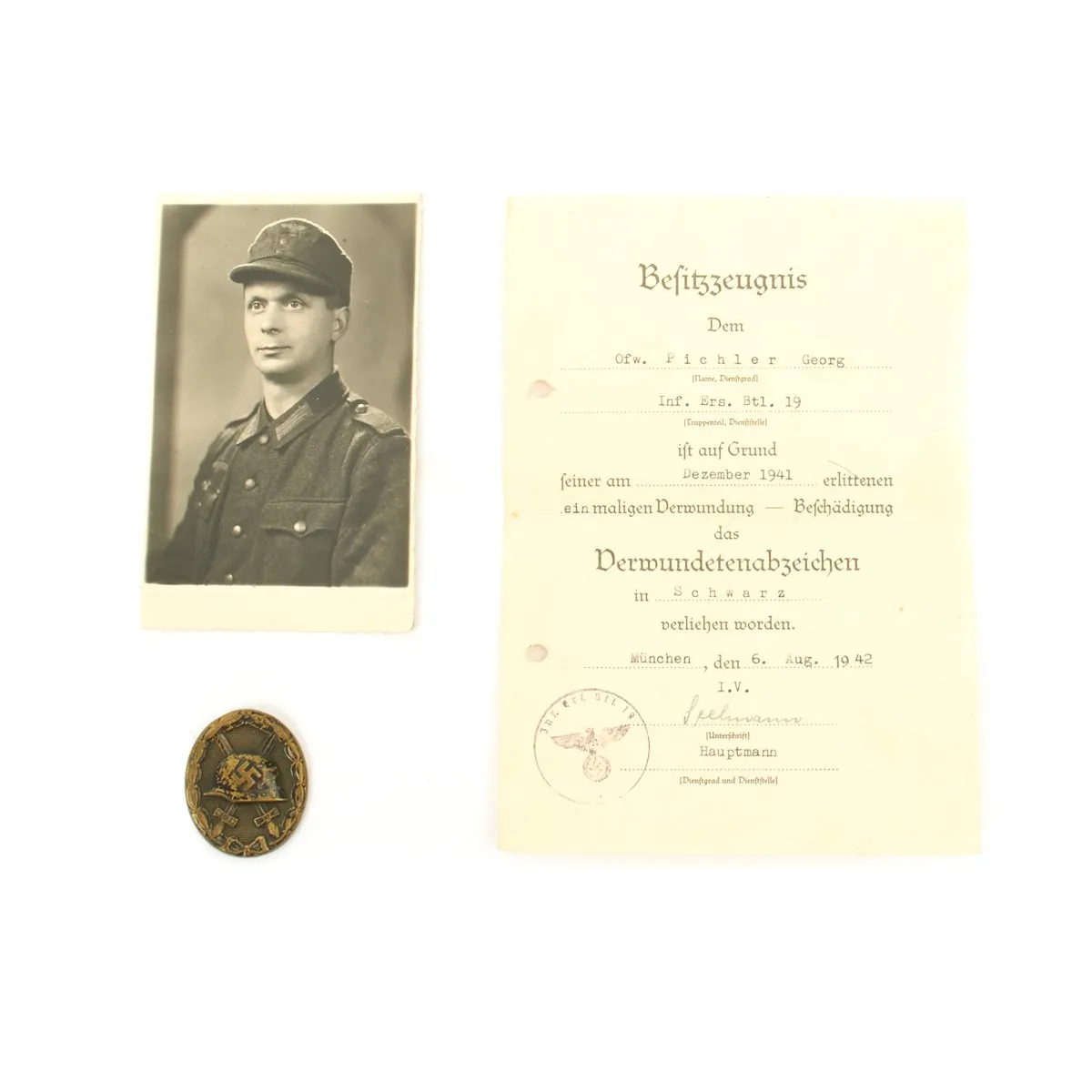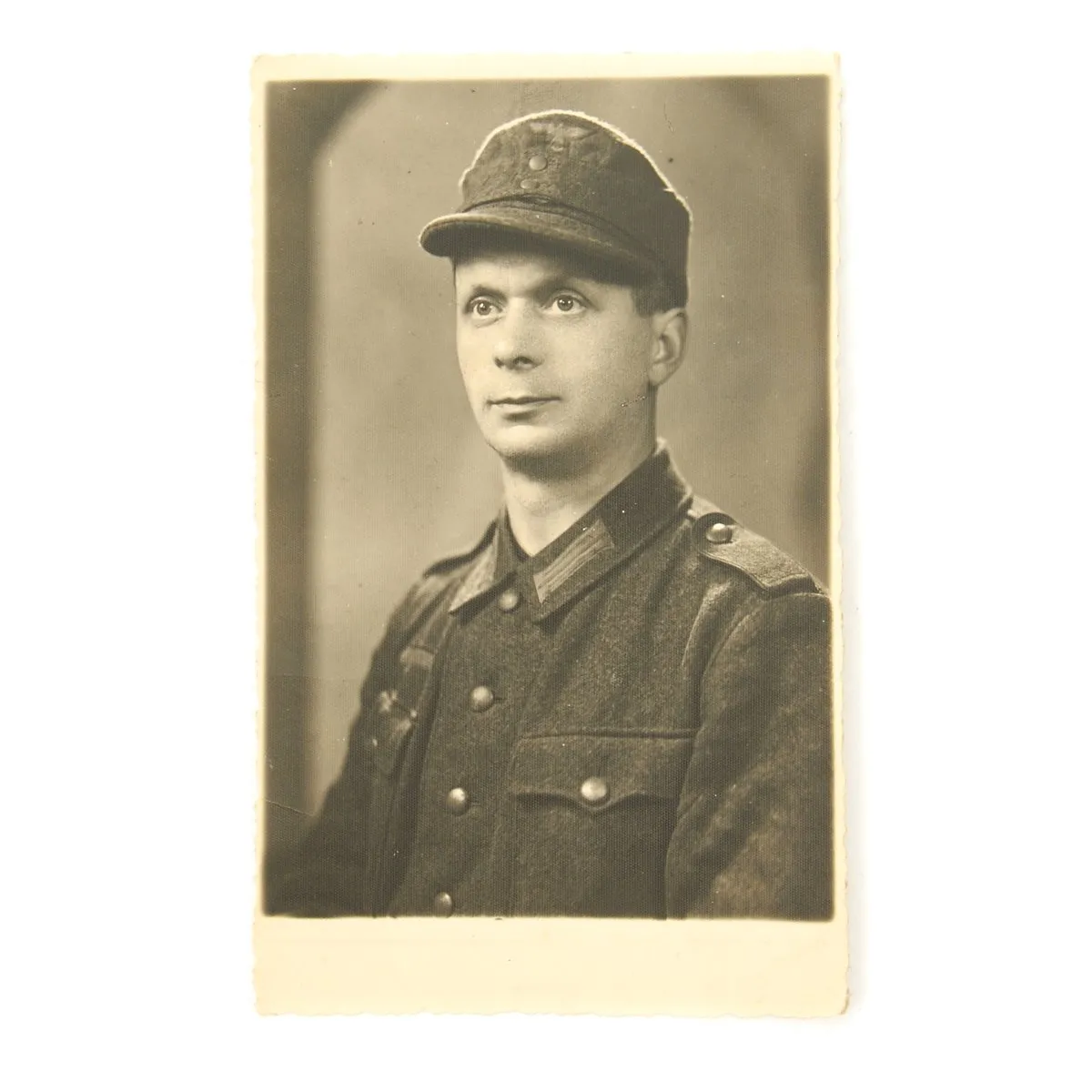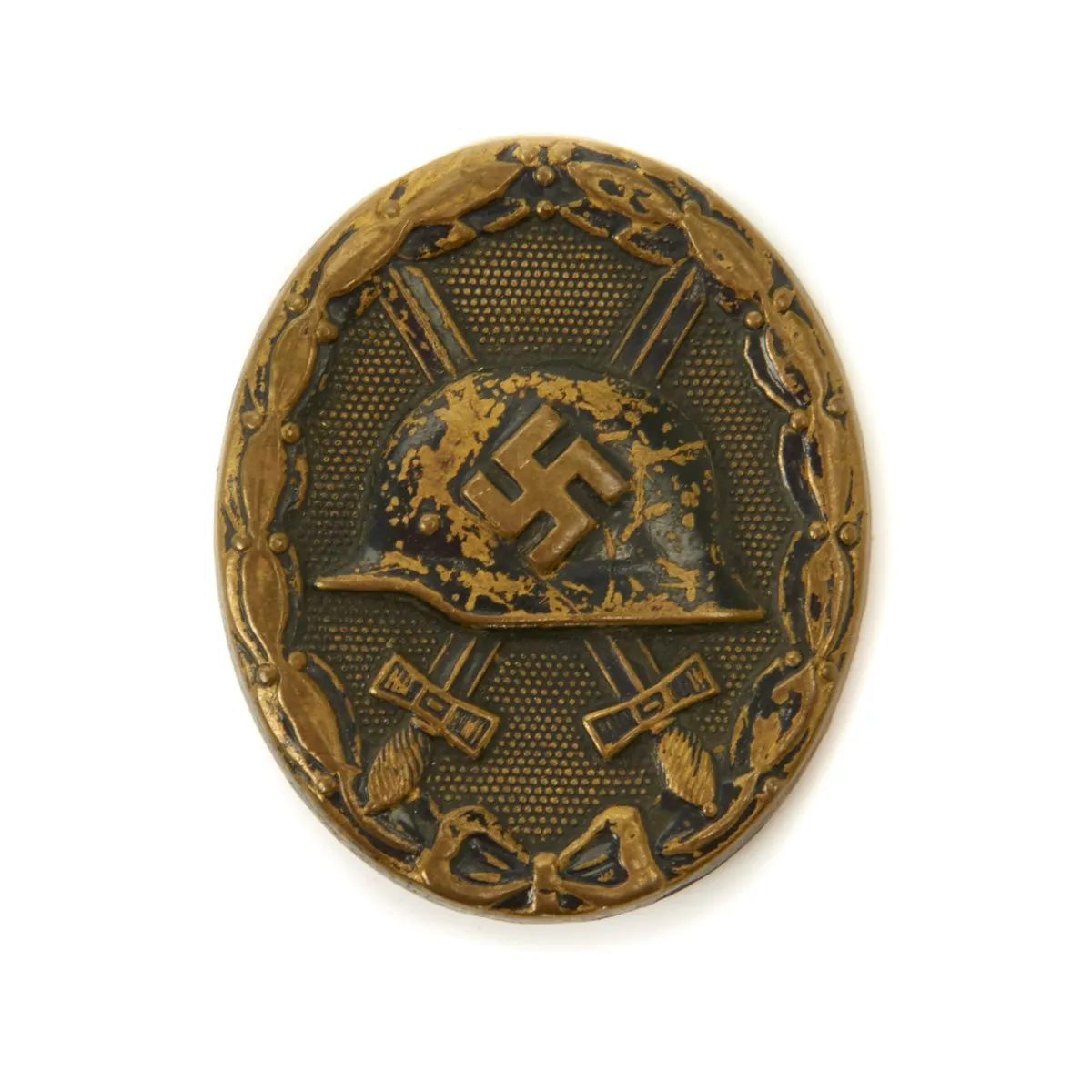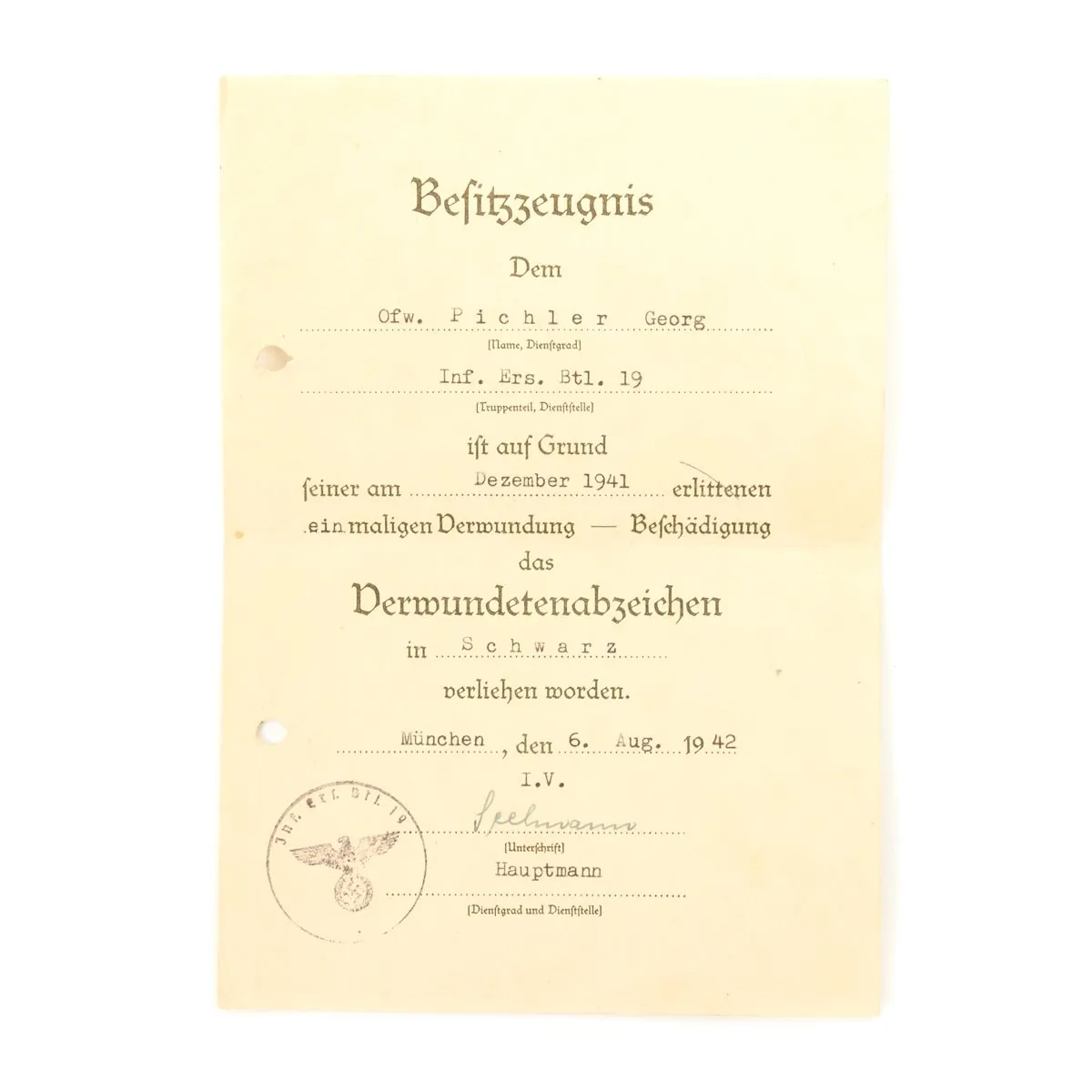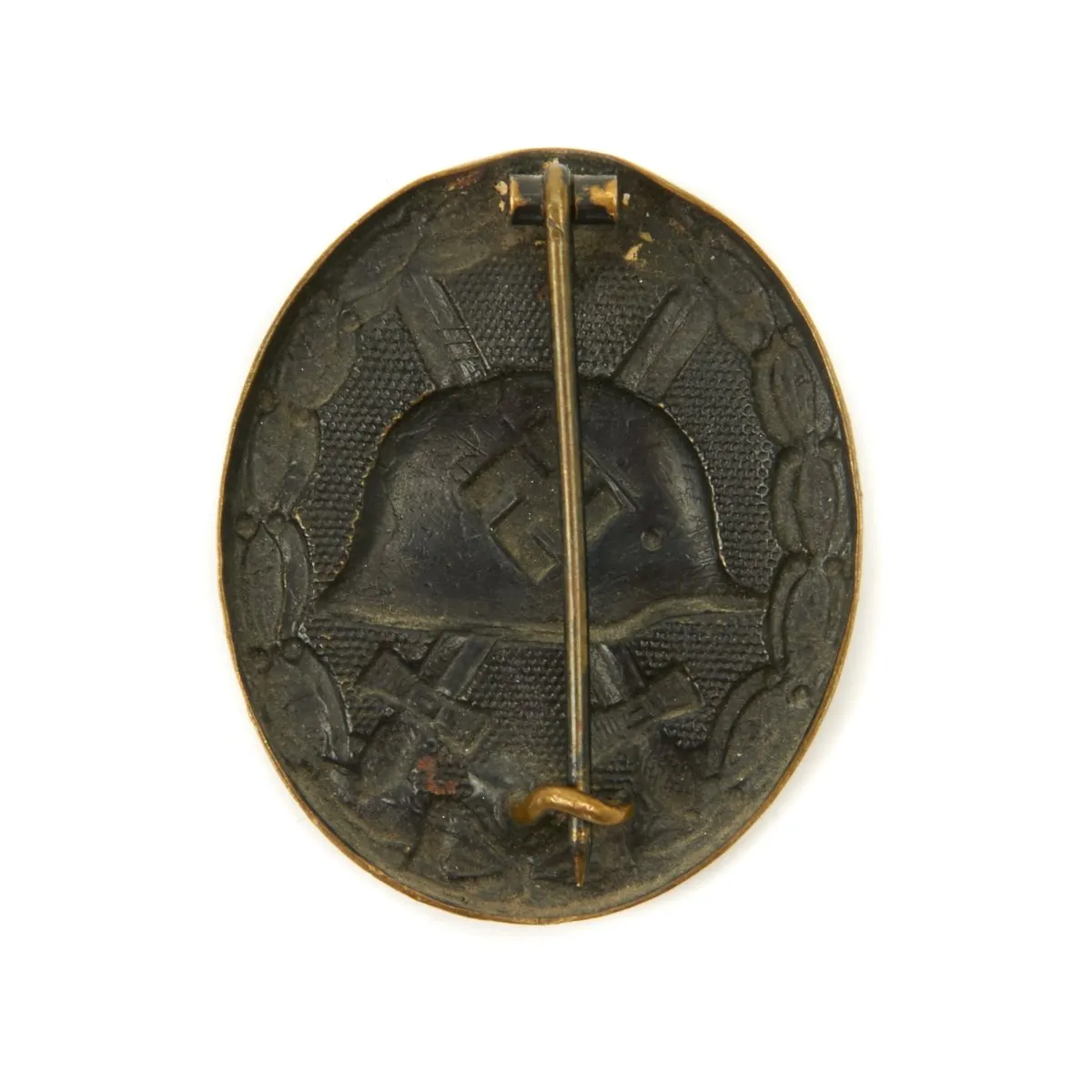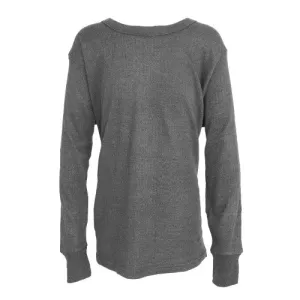Original Items: One-of-a-kind grouping. The Wound Badge (German: Verwundetenabzeichen) was a military decoration first promulgated by Wilhelm II, German Emperor on 3 March 1918, which was awarded to wounded or frostbitten soldiers of the Imperial German Army, during World War I. Between the world wars, it was awarded to members of the German armed forces who fought on the Nationalist side of the Spanish Civil War, 1938–39, and received combat related wounds. It was awarded to members in the Reichswehr, the Wehrmacht, SS and the auxiliary service organizations during the Second World War. After March 1943, due to the increasing number of Allied bombings, it was also awarded to wounded civilians in air raids. It was awarded when the wound was the result of enemy hostile action, with an exception being for frostbite.
The badge had three classes:
- Black (3rd class, representing Iron), for those wounded once or twice by hostile action (including air raids).
- Silver (2nd class) for being wounded three or four times.
- Gold (1st class, which could be awarded posthumously) for five or more times wounded.
The "progression" could be waived in the event of loss of a limb or eyesight; when such a severe wound occurred, the silver badge was awarded.
Badges were made of pressed steel, brass and zinc. All versions of the Wound Badge were worn on the lower left breast of the uniform or tunic. The badge was worn below all other awards on the left. It ranked lower than combat badges. There were 24 approved manufacturers of the Wound Badge. At first, the Wound Badge in Black was stamped from sheet brass, painted semi-matte black with a hollow reverse pin back attachment or of solid construction. From 1942, steel was used to make the badges. The Wound Badge in silver was made (before 1942) from silver-plated brass, and (after 1942) from lacquered zinc, and had a solid reverse with either a needle pin or a broad flat pin bar. The Wound Badge in Gold was a gilded version of the Wound Badge in Silver. In 1957, a revised version of the Wound Badge was authorised for wear; however, the previous type could still be worn if the swas were removed (for example by grinding).
This award document example approximately, 8" x 5.5, (20cm x 14cm), mid-weight paper document with black, printed Gothic/Fraktur script and typed in particulars. The script indicates that, Oberfeldwebel Pichler Georg was awarded the Wound Badge 3rd Class for injuries received in December 1941. The document bears the authorizing signature of a Hauptmann (Captain) and was presented in Munich on August 6th, 1942. The document shows yellowing typical of age.
The badge is an goo condition totally genuine 3rd class Black Wound Badge with functional pin back, there is also a photo of Georg in uniform.

